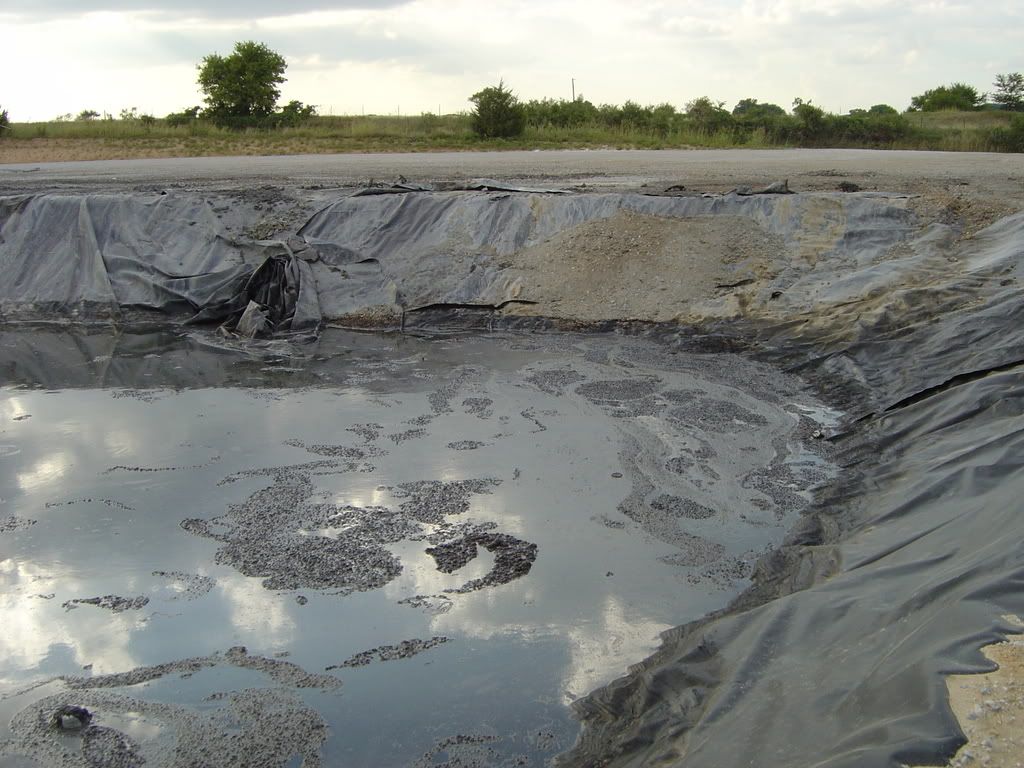This first article, basically a rehashed press release if you ask me, gives you the gas company perspective, as well as the web address of the Marcellus Shale Coalition, a group of (wait for it–not government regulators, not community members, not EPA reps) gas companies (oh, we can trust them, big business has never screwed over rural communities) who assure us through their pretty website that everything is A‑OK, and boy, isn't this a great opportunity for Pennsylvania. Entire article follows:
Gas industry responds to flowback concerns
Published: Wednesday, February 10, 2010 3:54 PM CST, in the Wellsboro (PA) Gazette
The Marcellus Shale Coalition issued the following statement Feb. 4 regarding water use and flowback water management in the development of natural gas from the Marcellus formation:
“Pennsylvanians deserve to get the facts about water management for Marcellus shale development. We need to put an end to the suppositions that could threaten our state’s ability to create jobs and investment here at home.
“Regulations governing the use and management of water needed to drill a Marcellus shale well in Pennsylvania are among the most stringent in the nation, and ensure the protection of the commonwealth’s water resources. Water withdrawals from streams and rivers must be approved, including the withdrawal location and amount of water required for each well, as well as detailed storage and treatment plans.
“The industry currently treats or recycles all of its flowback water. Recycling accounts for approximately 60 percent of the water used to complete Marcellus shale wells, with greater percentages predicted for the future. There are more than a dozen approved water treatment facilities available to treat flowback water, with plans for additional capacity in the future.
“Companies are working with international water quality experts and are funding research and development projects to develop mobile and permanent treatment technologies such as evaporation and crystallization. These efforts will enhance the commonwealth’s overall water treatment capabilities, while bringing more commerce into Pennsylvania. We’re also researching and developing deep underground injection well technology, which is a proven, safe disposal method in other regions of the country.
“Claims about elevated levels of Total Dissolved Solids (TDS) in the Monongahela River from natural gas development have been refuted by studies that attribute a minimal amount of the total TDS levels to Marcellus shale drilling activity. In fact, historical monitoring shows the variability of TDS levels in the Monongahela and other rivers to be a cyclical phenomenon over the past 30 years.
“The industry is committed to the use of Best Management Practices in all aspects of its operations, including significant investment in advanced flowback water treatment capabilities and recycling technologies.”
The Marcellus Shale Coalition is comprised of dozens of drilling and service companies who work in Pennsylvania’s oil and gas industry. Its Web site is www.pamarcellus.com.
It's a damned good thing the US Supreme Court recently granted 'personhood' to corporations. These newly made Adams can now spend all the money they like supporting their favored candidates, and we can look forward to more of this PR tripe even out of election season. This is how the business conglomerate-person speaks, as if it has no personal stake nor responsibility. In vapid, Orwellian PR-speak, it pays lip service to the idea that it supports the people it's bending over a chair and screwing. For all those quotation marks in this piece, not one is attributed, and therefore no one is responsible for its veracity. Just this newly-made 'person': the gas companies.'
capped well, Spring Lake, Bradford County PA
Here's another perspective from Laura Shin's blog on http://www.solveclimate.com, dated 9/29/09:
Last week, three spills of potentially carcinogenic hazardous chemicals at a natural gas drilling site in Pennsylvania prompted the state’s environmental protection agency to suspend Cabot Oil & Gas's operations in the county.
The spills were just a small part of a larger phenomenon — accidents at natural gas drilling sites that have imperiled the drinking water of nearby communities in states from Pennsylvania to Wyoming and that have no governmental oversight.
They call it the “Halliburton Loophole” — an exemption for oil and gas companies to inject hazardous materials directly into or near underground drinking water supplies in a process called hydraulic fracturing.
Hydraulic fracturing, commonly called “fracking,” is used in natural gas wells to push fluid and sand at very high pressure into rock formations to release gas. Fracking fluid can contain chemicals that are hazardous and carcinogenic. Halliburton, a pioneer of the technique, says 35,000 wells are fracked each year.
As more accidents are reported at wells being “fracked” (undergoing hydraulic fracturing), both houses of Congress are considering legislation to close the Halliburton Loophole, so nicknamed not just because Halliburton developed the technique but also because former Halliburton CEO and ex-vice president Dick Cheney urged the creation of the exemption in 2005. More than 160 community and national groups have signed a letter of support for the bills in Congress.
“We think everybody deserves to have their drinking water protected. It’s pretty simple,” says Amy Mall, senior policy analyst at the Natural Resources Defense Council, who has blogged regularly about fracking accidents. Continue reading.
Some other links of interest:
http://un-naturalgas.org/weblog/tag/hydraulic-fracturing/
http://frackmountain.wordpress.com/2010/02/04/educate-yourself-7-minutes‑2/
http://www.donnan.com/Marcellus-Gas_Hickory.htm







Pingback: wellsboro pa